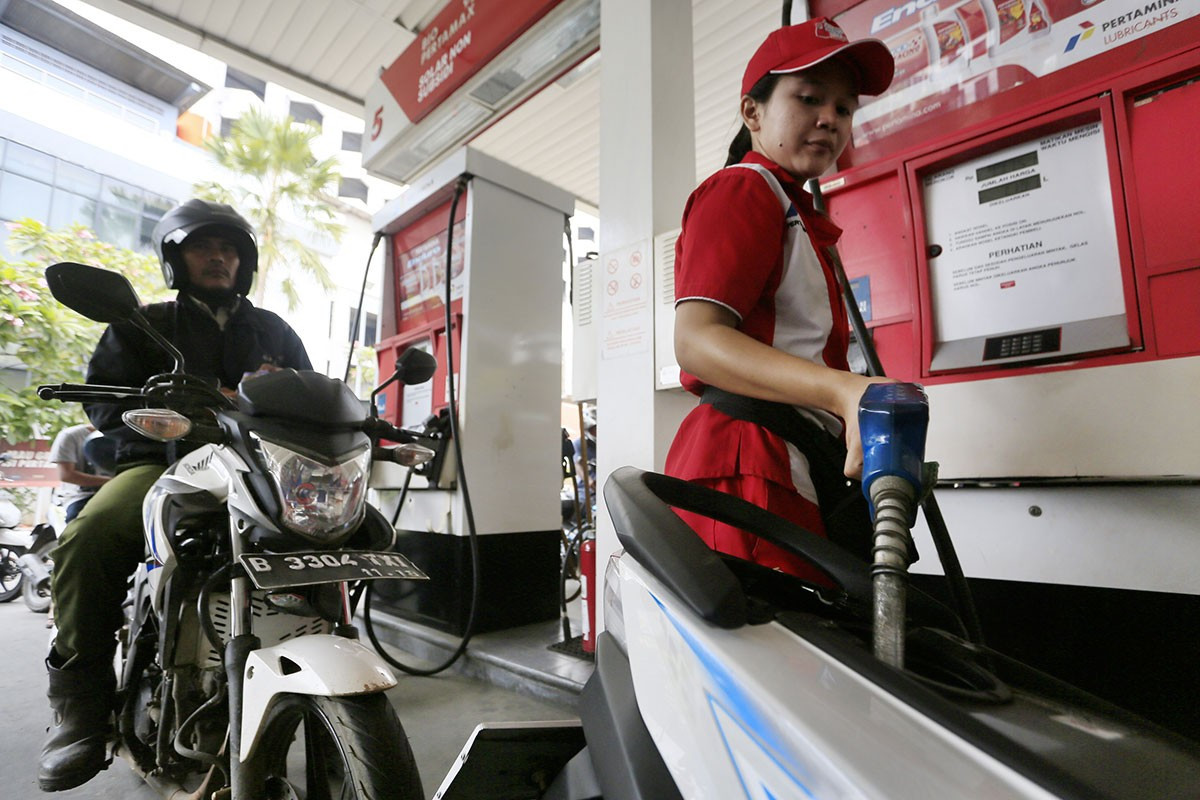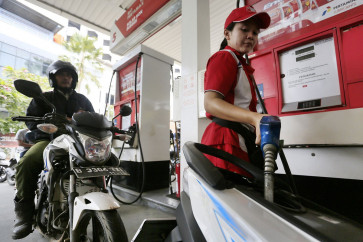Popular Reads
Top Results
Can't find what you're looking for?
View all search resultsPopular Reads
Top Results
Can't find what you're looking for?
View all search resultsAnalysis: Confusion lingers over govt plan to limit subsidized fuel consumption
Change text size
Gift Premium Articles
to Anyone
M
inisters from President Joko “Jokowi” Widodo’s administration have brought the topic of the subsidized fuel, Pertalite, back into the spotlight. The plan is to reduce the consumption of the government subsidized fuel beginning August, coinciding with Indonesia’s Independence Day. However, differing statements from high-ranking officials have left the public puzzled, as the government has yet to reach a consensus on curtailing the country’s fuel subsidies.
Coordinating Maritime Affairs and Investment Minister Luhut Binsar Pandjaitan was the one who first floated the idea of imposing restrictions on subsidized fuel, set to begin on Aug. 17, 2024. The restriction, he explained, was part of the government’s measures to improve the efficiency of the fuel subsidy and thus improve the state finances. Additionally, Luhut said, the government would introduce low-sulfur bioethanol as a substitute for Pertalite to alleviate the financial burden of oil imports and mitigate air pollution.
In contrast with Luhut, Coordinating Economic Minister Airlangga Hartarto and Energy and Mineral Resources Minister Arifin Tasrif refuted reports that the government intended to restrict the use of subsidized fuel beginning Aug. 17. Arifin said the government was still determining which vehicles qualified for subsidies and it needed time to ensure the data was accurate. President Jokowi also spoke out and said there would be no such restrictions on subsidized fuel just yet.
Minister Arifin also noted that the initial rollout of low-sulfur bioethanol would be a pilot project, allowing for further testing and refinement. The search for effective additives continues to ensure compliance with Euro 5 standards, which requires a significant reduction in sulfur content to below 50 parts per million (ppm). Currently, subsidized Pertalite, with a research octan number (RON) of 90, and RON-92 Pertamax, still has a sulfur content of around 500 ppm, far from the Euro 5 standards. Only RON-95 Pertamax Turbo has sulfur content of below 50 ppm.
The government has introduced RON-95 E5 bioethanol, but questions remain on where the government would source the ethanol if the fuel became mandatory. The government apparently wants to copy the success of the B30 biodiesel program, a blend of 30 percent palm oil and 70 percent fossil-based diesel fuel. Indonesia has abundant source of palm oil, but not yet for ethanol.
By curtailing the consumption of subsidized fuels, the current government is apparently trying to pave the way for the next government to reduce the fuel subsidy. The incoming government under president-elect Prabowo Subianto targets to cut the fuel subsidy drastically by Rp 67.1 trillion (US$4.16 billion) in the 2025 budget from Rp 113.3 trillion this year to give more space for the next government to allocate budget for its free meal program that would cost Rp 71 trillion in the 2025 budget.
With the huge fuel subsidy budget cut, the current government has proposed to subsize the Solar diesel only, with total volume of between 18.33 and 19.44 kilo liters (kl) in 2025, up from 17.8 million kl this year. There will be no more Pertalite. It remains to be seen how the next government would implement the reduced fuel subsidy.



















